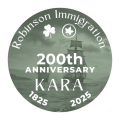Fresh ideas for tackling Family Research
Genealogy Tips
Eight Great Tips for Family History Research
Fresh ideas for tackling Family Research can prove helpful. Here are eight tips that might move your research forward.
1. Brick Walls
We all find points in our family history research when locating details about a family proves elusive. Finding the family in a given census, when you just know they should be in a certain area, but no matter how often you check, the person simply does not appear in the list of possible matches.
TIP Ideas: Try searching for one of the other family members who should also be in the household on that same census.
Try search for the family surname, leaving the first name blank.
2. Put Pen To Paper
The idea of starting to write your family history is daunting. Breaking the entire book idea down into smaller sections can make the task achievable.
TIP Ideas: Set a weekly goal to write about one event in one family on your tree. Perhaps write two paragraphs about what you know about the wedding of your great-grandparents, for example.
3. I Found It Online
Information found online can be totally accurate. Or, it might be no more than a best guess. Be cautious in the process of adding new material to your family file.
TIP Ideas: Check to see if online information includes a source notation or better yet, a source document about the event. Confirm the sources of information before adding the details to your own family tree.
4. Be Considerate
Sometimes we learn information that not everyone in the family would like to become public knowledge. Keeps notes in your family file private if such detail might cause hurt to others.
TIP Ideas: Do not publish details that might embarrass or hurt others.
5. Primary Documents
Records such as birth, marriage and death registrations, are known as primary documents. They were written down close to the time the event took place and usually by someone who was present at the time.
TIP Ideas: Save a copy of event registrations for members in your family tree. These documents can clarify the accuracy of the dates that others say are that ancestor’s birthday or wedding date or date of death.
6. Small Bites
Some days we make a plan to get a great number of “things done” during a single research session. It can be an overwhelming list.
TIP Ideas: Focus your list of things to search for on a given research visit, to one or two family groups. Bouncing from one family to another, from one family line to another, tends to be confusing. Keeping the focus narrowed to one or two family groups should make the searching more achievable.
7. Breaking Down Brick Walls
Sometimes it is easier to know what records to search in, when we know a little of the history around how the records were created.
TIP Ideas: Develop a time-line chart for the changing names of an area. For example, before we called it Ontario, it was known as Upper Canada for a number of years. Then it was called Canada West.
8. What's In A Source?
Sources range from those that are simply a memory to a document written down at the time an event took place. Recorded documents are stronger sources than reliance on someone’s recollection years after the fact, of when an event took place.
TIP Ideas: Gather up family recollections of when and where events took place. But, verify those family memories with documents that were written down at the time the events actually occurred.



